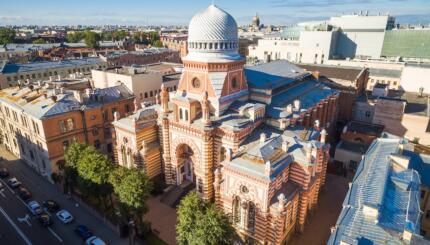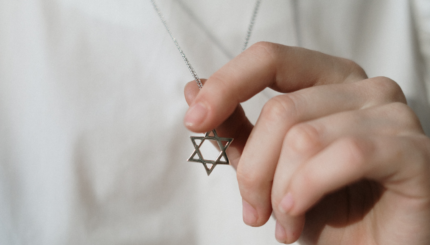Souksavat Soukhaseum, or Souks as he is known, was born in Laos, grew up as a Buddhist, came of age in California and now lives as a Jew in Queens, NY. Be’chol Lashon caught up with him to learn more about his background and journey.
Team Be’chol Lashon: Tell us a little bit about your background
Souks: I was born in Laos, in Luang Prabang. It is a city in the north that was the cultural capital. During the secret war, lots of planes flew over our home. With the communist government in place our parents were worried that we would not get the education that we needed to succeed in life. My mother insisted that we leave, so in 1989, we started our journey to get out of Laos. Making our way over time to California.
Team Be’chol Lashon: Was it as simple as deciding to go?
Souks: Not at all. We had to sneak out. We had to make our way towards Thailand. My mother’s uncle worked for the United Nations in New York and was able to get us papers but we had to sneak out of Laos. Lots of people were trying to leave because of the war but the government didn’t want people to go. Eventually, we made a plan to walk across the shallow end of the Mekong River. We scoped it out for several days. Then we decided to cross at night on a police holiday because we figured the police would not be watching the river. But there were soldiers instead. They caught us and were pointing guns at us. All around us we heard shooting and we knew what could happen. But my mother was pregnant and they took pity on us and so we were able to escape to Thailand.
Team Be’chol Lashon: How old were you?
Souks: I was not even 10, I was the youngest boy in the family, four older brothers and my sister who was not yet born. When we got to Thailand, we were lucky to get out of the refugee camp because of my mother’s uncle.
photo credit Julian Voloj
Team Be’chol Lashon: Did you go directly to the United States from Thailand?
Souks: We made a short stop in the Philippines for a full health check. Oddly enough, when they checked my ear, they found a bean that had sprouted. Otherwise, we were completely healthy and able to go to California.
Team Be’chol Lashon: Your family is Buddhist, how did you come to Judaism?
Souks: Well, I grew up in San Francisco. My first introduction to Judaism was through a boyfriend who was a holiday Jew. I liked that Jews told stories. They are not afraid to talk about their stories, even their suffering. I really liked that. There is a real sense of community and connection in Judaism. A sense of belonging. When I came to New York, I also had a Jewish boyfriend, one who kept . So I started educating myself. Reform Judaism really speaks to me. It is so welcoming and is so glad to have everyone come as they are. I really feel at home in Judaism.
Team Be’chol Lashon: How did your family feel about you converting?
Souks: At first they were confused because they did not know much about Judaism. But then they were happy. As long as I am living a good life, not hurting others, being moral, then they are happy.
Team Be’chol Lashon: Do you see overlap between your Laotion background and your Jewish identity?
Souks: In both communities, there is a story of persecution, suffering and rebirth. Both communities have done an amazing job of rebuilding. I’ve learned so much from Holocaust survivors about telling stories about the difficulties of the past. Laotions don’t talk that much about their stories. Now I’m always asking my dad to tell me stories and to know more about how we got here.
Team Be’chol Lashon: You used to work in finance, but recently you’ve made some changes.
Souks: Yes, after college, I got an internship that sent me to Vietnam to study the banking system there, and then I spent many years working in finance. After the financial collapse, I traveled the world. Now I am the Director of Community Affairs for the Free Synagogue of Flushing. I work to help connect our congregation with other communities in our neighborhood, which is a Chinatown. For example, I work with our local farmers market so they can store supplies in our building. I arrange tours of our building and historic stained glass window.
Team Be’chol Lashon: Do people ever question your place in the Jewish community because you are Asian?
Souks: Sometimes, when I’m wearing my , people on the street will ask me, “What tribe do you belong to?” I see that as an opportunity to educate people that you can be Jewish and Loatian. I see that as part of my outreach. Generally, people ask respectful questions. One year on , a visitor to our told me that I could not go inside because I was not Jewish. Later when I was marching around holding the Torah, people thought that I was crying because of the man who had been bothering me, but that was not it at all. I was crying because it was such an honor to be holding the Torah. Here I was, a new Jew, a refugee from Laos, and I was holding the Torah on the most important day of the year.



